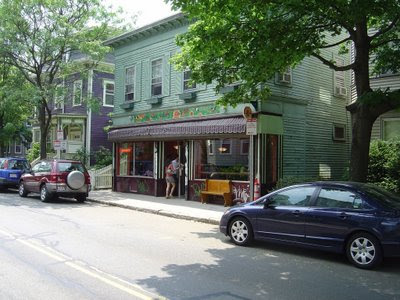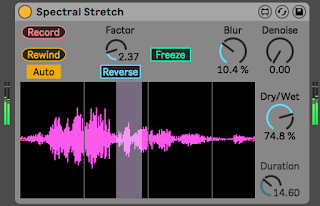Meet Prisma in Shanghai

Prisma is a group of composers and researchers dedicated to International Pedagogy and Research on Assisted Musical Systems. The next Prisma event is happening in Shanghai Conservatory as part of the 2009 Shanghai International Electroacoustic Music Week. From October 16th to 26th, you can attend workshops (including hands-on instruction by the best specialists of PWGL), a series of conferences, and concerts.
I have been invited with the following musicians and researchers:
- Hans Tutschku, composer, Harvard University (USA)
- Jacopo Baboni-Schilingi, composer, Conservatory of Montbeliard (France)
- Orjan Sandred, composer, researcher, University of Manitoba (Canada)
- Johannes Kretz, composer, researcher, University of Vienna (Austria)
- Mikael Laurson, researcher, Sibelius Academy, Helsinki (Finland)
- Carlos Caires, composer, Escola Superior de Música de Lisboa and CITAR - Research Center for Science and Technology in Art (Portugal)
- Mika Kuuskankare, researcher, composer, Center for Music and Technology, Sibelius Academy, Helsinki (Finland)
I'm looking forward to discovering the conservatory's facilities, and meeting both the students and the guest Chinese composers and researchers:
- Feng Yin, researcher, Xiamen University, Institute of artificial intelligence, Group Art and Mind Lab
- Jian Liu, Wuhan Conservatory, Director of the Computer Music Departement
- Wing-wing Lee, Hong Kong Academy for Performing Arts, Head of Sound Design & Music Recording Department
Check out www.prisma-shanghai.org for more information.
What I'll be teaching
Here are some of the topics I proposed to address in my workshops. If you come, you can be certain that the content will be tailored to fit your needs!
- Live Electronics with Max MSP & Jitter - beginners
- Spectral Sound Processing with Max/MSP/Jitter, including audio freeze and time stretching - and the answers to all of the questions you may have after reading my Tutorial from the Computer Music Journal
- Improvisation session with live electronics and traditional Chinese instruments
- When and why use Max for Live
Shanghai Conservatory - 4 full days: October 16th to 19th.
What I'll be presenting
A few ideas I plan to incorporate in my intervention during the Prisma symposium:
- Why you need Max 5: have fun with graphical sound processing in real time
- Why you do not need Max 5: compose and perform a piece with live electronics
- Why you need Max 5: to teach and to learn
- What you do not need Max 5: flexibility is key
Shanghai Conservatory - October 20th, 2:30 to 3:45 pm
What I'll be performing
The organizer of the 2009 Shanghai International Electroacoustic Music Week invited me to perform a piece for clarinet and live electronics. Rather than playing an old piece such as Plex, I have been composing a new piece that will be entitled Electroclarinet 1.
Electroacoustic Music Center Shanghai - October 20th, 7:30pm
Electroclarinet 1 - Program notes
A couple of weeks ago, I wrote program notes that I kept fairly general given that the piece wasn't written yet... I hope I'll meet the requirements.
In Electroclarinet 1, Jean-François Charles presents his electronically enhanced clarinet. This exploration and combination of different sonic characters is also a reflection on the expressive power of electro-acoustic instruments.
Jean-François Charles belongs to the long tradition of composers who are also performers and instrument developers. He is fascinated by both the richness of acoustic instrument sounds and the ever-expanding possibilities offered by live electronics. In Electroclarinet 1, he shows that the expressivity so tactile in acoustical music (solos, chamber music, orchestra) may be just as palpable with new electronic sounds.



Comments
Post a Comment